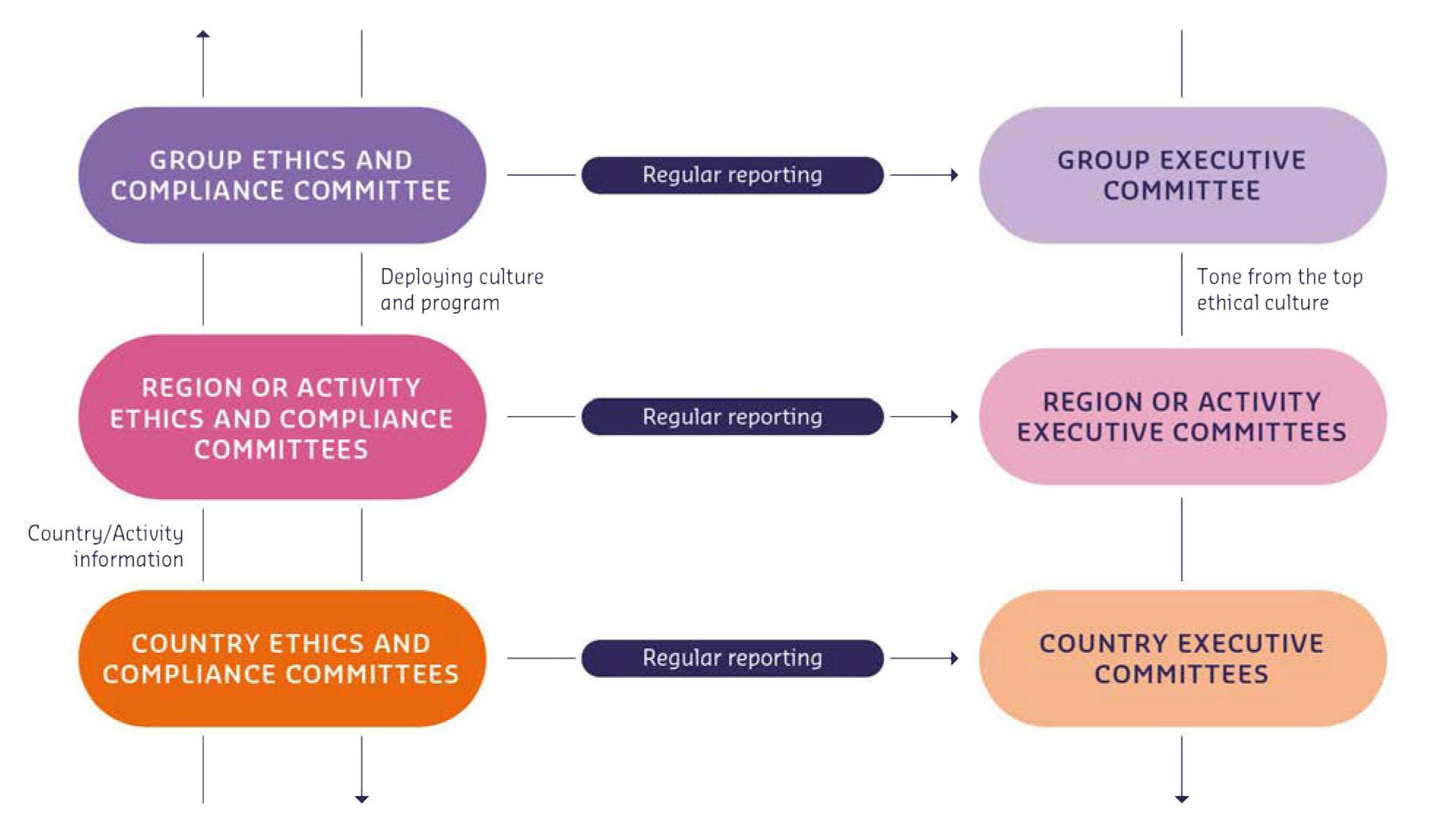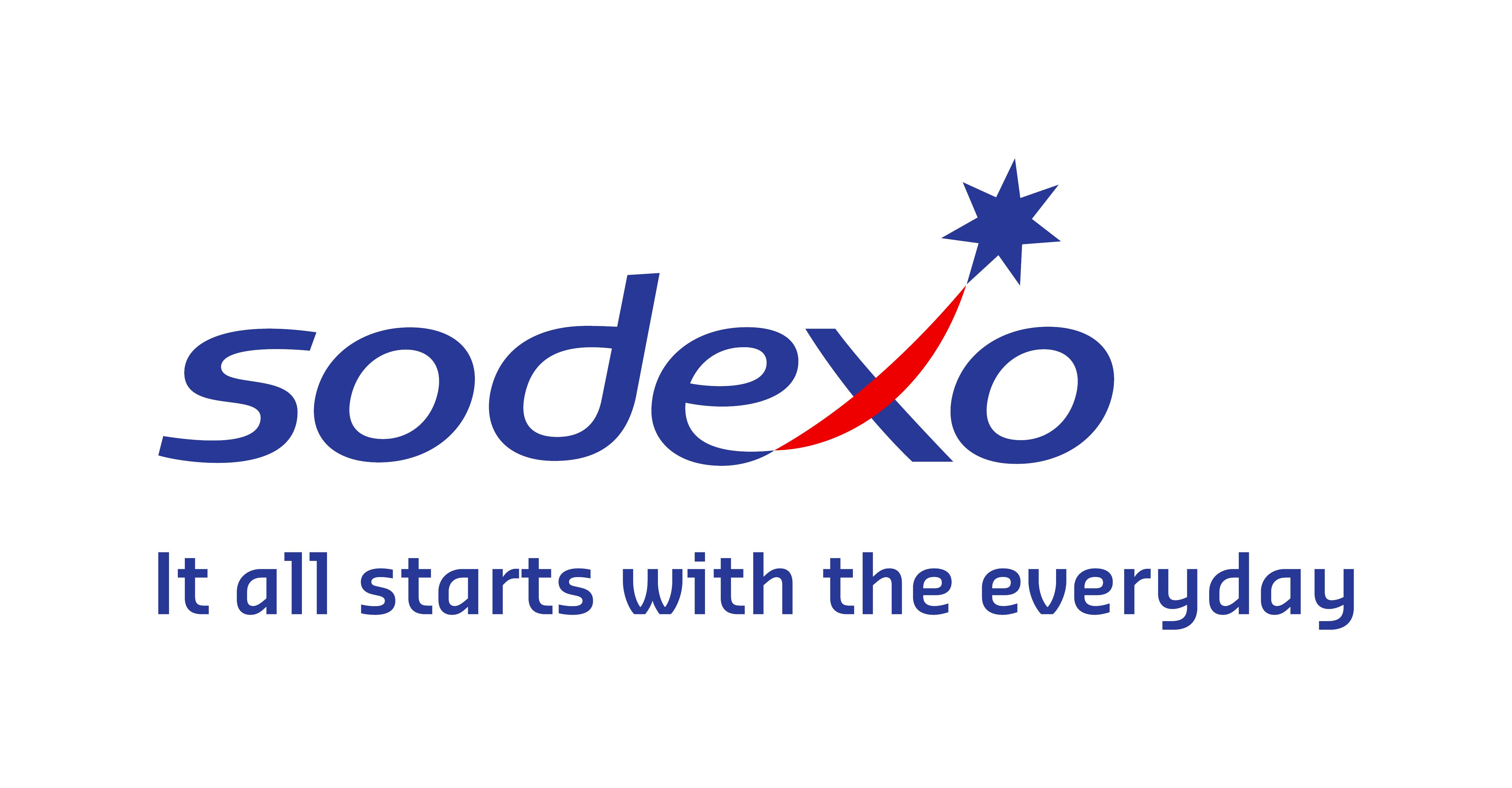6.3 Other information
6.3.3 Ethics and Compliance6.3.3 Ethics and Compliance
Conducting all aspects of Sodexo’s business with the highest standards of ethics and integrity is essential to Sodexo’s purpose to create a better everyday for everyone to build a better life for all and constitutes a fundamental pillar of the Group’s Responsible Business Conduct commitments.
In 2007 Sodexo chose to appoint a Group Chief Ethics Officer, responsible for promoting ethical principles and Responsible Business Conduct culture.
6.3.3.1 Ethics and Compliance governance
The Group Ethics and Compliance Committee ensures that business is conducted responsibly. This Committee, co-chaired by the Chief Ethics Officer and the General Counsel, is composed of representatives of key functions: Ethics, Legal, Internal Control, Internal Audit, Human Resources, Supply Management, Corporate Social Responsibility (CSR), and Communications, and sponsored by two members of the Executive Committee. The Committee submits quarterly updates to the Group Executive Committee. During the last fiscal year, the Ethics and Compliance Committee met four times.
A local network dedicated to Ethics and Compliance issues has also been deployed throughout the Group. This network draws up the local risk mapping, adapts the Group’s overall program, reports to the Group all information linked to local deployment and assists operations teams on a daily basis.

This flowchart shows the Ethics and Compliance Governance
For the Country Ethics and Compliance Committee, the country activity information is sent to the region or activity ethics and compliance committees. Their regular reporting is done to the country executive. The region or activity ethics and compliance committees do it’s regular reporting to the region or activity executive committees. The group ethics and compliance committee does the deploying culture and program and does its regular reporting to the group executive committee.
The group executive committee tones from the top ethical culture to the region or activity executive committees end to the country executive committees
6.3.3.2 Ethics and Compliance program
In order to make its strategy tangible as well as meeting the applicable legal requirements, Sodexo has structured its Ethics and Compliance program around the following pillars:
1. A committed management team: Sodexo’s management team embodies the Group’s culture of integrity and has a zero-tolerance policy for any form of unethical practice, such as bribery, corruption, harassment, or breaches of human rights. This commitment is shown, for example, by the regular briefings made by Sodexo management and during specific regional events such as “Integrity week” “anti-corruption day”. In addition, dedicated awareness-raising actions have been introduced for senior leaders, as well as for regional and country directors. A reflection question on ethical behavior has been embedded in the manager year-end performance review. It is completed by employees and managers to support reflection on alignment with the Responsible Business Conduct culture in the overall individual performance.
2. Risk assessment: Risks specific to Responsible Business Conduct have been assessed for each country and aggregated within the global risk mapping. These risks cover major issues such as bribery, corruption, breaches of human rights, antitrust practices and environmental damages. Following the renewal of the corruption risk scenario matrix in Fiscal 2021, the focus in Fiscal 2022 was on strengthening the human rights in the workplace risk assessment. The risk catalog and risk cards were reviewed and updated, with the focus firmly placed on the individual (the rights holder). Each Sodexo entity then carried out a risk assessment for the risks in the catalog. The assessments from the main entities were aggregated to form a global picture for each of the human rights risks.
